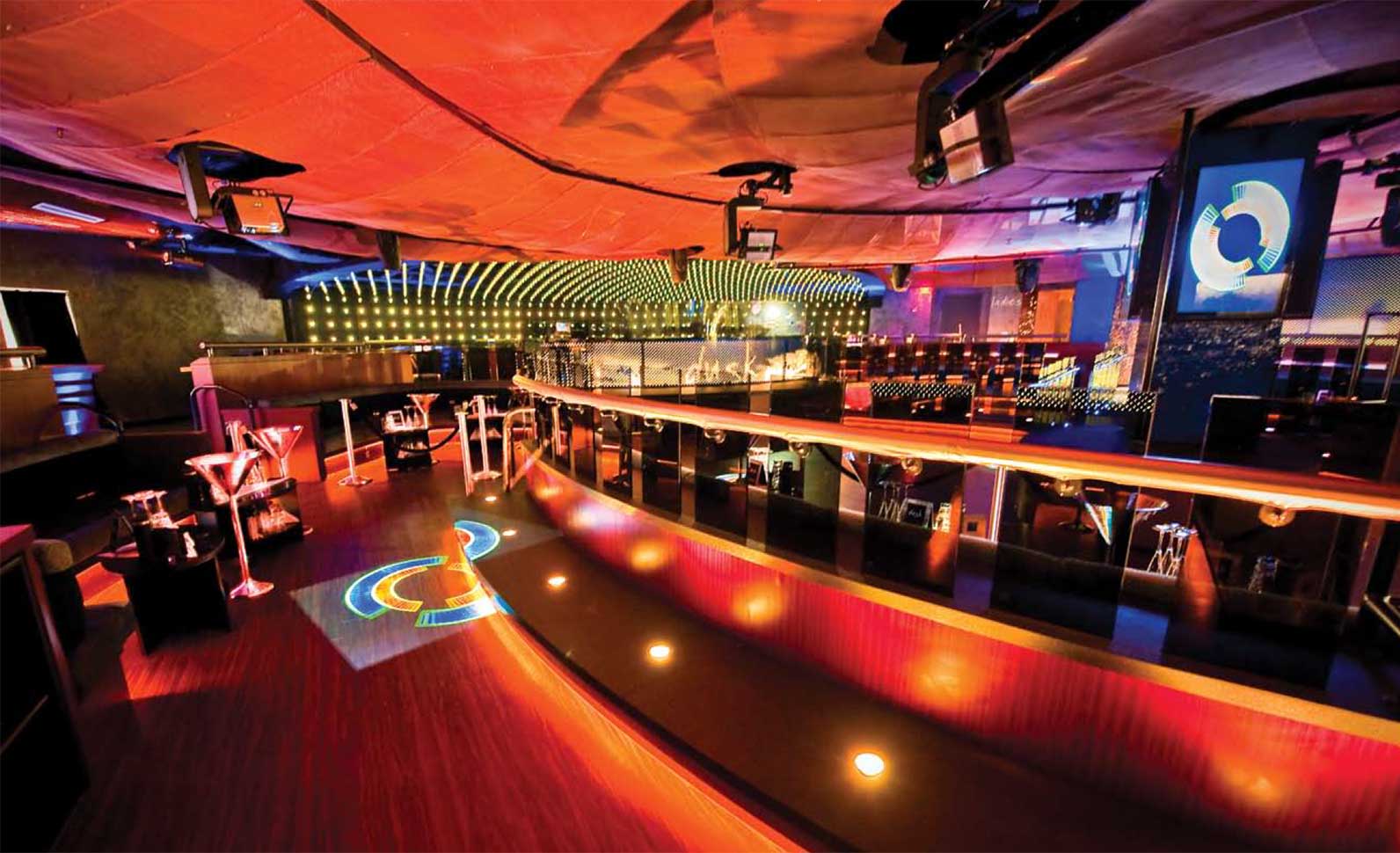Dusk Rises
An Atlantic City nightlife vet takes his vision across town.
By Kerri Mason | Club World
July 2009

Dusk has benefited Caesars marketing muscle, with prominent billboard placement and a media takeover of a subway hub station in Manhattan.
The dominant spirit of nightlife is the entrepreneurial one. Most owners and managers have visions of dancefloor glory in their heads from the early days, maybe since the first time they experienced a nightclub. The idea of having your own place—getting an empty room and filling it with your style, your sound, your vision—is very much in line with the American Dream.
It was that force of will that led Eric Millstein—a name synonymous with Borgata Atlantic City’s nightlife revolution—from that very place. Like so many other club guys on the casino-hotel dole, he had enough of the daily grind.
“I was a little bit Groundhog’s Day for the last year [at Borgata],” he says. “I was never going to have my own place there; it wasn’t going to happen. The nightlife department did so well, why would they bring someone in from the outside? It wouldn’t have been good business on their part. They had me to do it, and I was on the payroll. It was a no-brainer to leave.”
So Millstein left to head up the nightlife division of Red Stripe Plane Group, a family of entertainment companies. And within nine months, he already had his own baby: A long-vacant space at Caesars Palace—part of the country’s biggest gaming empire, Harrah’s Entertainment—that would soon get a reportedly $9 million makeover into Dusk.
“We’ve been moving in the [nightlife] direction here at Caesars for a few years now,” says Erin Hanson, vice president of marketing. The casino-hotel unveiled The Pier in summer 2006, a spectacular complex of shops and restaurants (including the very hip Buddakan) built directly over the water from the famed Atlantic City boardwalk. “As we brought in these non-gaming amenities, we started to see all these people coming over who were clearly in the demographic of going to a nightclub, and they clearly wanted something to anchor their night.”
Reports say that over the next few years, the hotel vetted the usual nightlife suspects before putting their confidence in Millstein and Red Stripe Plane. “The Caesars name conveys a lot; authority on gaming, luxury, iconic. There are a lot of things that go with our brand, so we didn’t want to settle for anything. We wanted to make sure whatever we put in that space not only looked and felt, but operated in the way we felt was consistent with our brand,” says Hansen. “Quite frankly, we took our time with the search.”
Dusk is a 10,000-square-foot (“But it’s in an oval, so I can say 10,000-oval-foot,” says Millstein), two-room lounge/club that instantly brings Vegas to mind: The tiered layout recalls Bellagio’s new Bank; the ultra-premium finishes are as lavish as those at the criminally wasted Cherry (at Red Rocks Casino, Resort & Spa). Even DJ AM is the headlining resident. But Dusk is very much its own creation.
“The only directive I got from Eric was ‘I need this to be insane. Steve, just do what you do,’” says Steve Lieberman of Los Angeles-based SJ Lighting, lighting designer for Dusk, and Millstein’s mur.mur at Borgata. So Lieberman came up with a suite of ideas as nifty as mur.mur’s distinctive LED globes. The first was a variation on a common theme.
“Bulb walls have been around forever. There have been bulb walls as long as there have been bulbs,” he says. “All interior designers have that picture from the Lenny Kravitz video on their storyboards. But you want individually circuited light bulbs? You gotta pay. That’s a quarter-million dollars’ worth of dimming alone. But if I use LEDs, I never have to change a bulb, and it can be more dynamic. It’s all mapped, and I can run video or lighting looks through it.”
So taking the lead from interior design firm iCrave, and with a little help from some electricians, Lieberman recreated the analog bulb wall look with something more digital. The team embedded Color Kinetics iFlex in more than 1,000 plastic fittings that looked just like bulbs. The resulting effect, on the top tier overlooking the DJ booth and dancefloor, is at once surprising and familiar.
Millstein turned to another past partner, Sound Investment of Chicago, for the audio. The exclusive Funktion-One dealers and installers used their usual pairing of Funktion speakers (48 in all) and MC2 amplification to deliver barely visible (many boxes are embedded under tables and dance platforms) but immersive sound throughout the ovular room.
A benefit of going from one powerful casino giant to another (albeit on your own terms)? You don’t lose that hefty marketing budget. Dusk has already benefited from placement in Caesars contracted billboard over the Lincoln Tunnel entrance (which carries commuters from New York City to New Jersey), a media takeover of a subway hub station in Manhattan, and even paging in upscale New York magazine. The Dusk target is definitely not your usual clubber.
The club opened on July 4 weekend with a set from DJ AM that left Dusk’s Facebook friends in an achy tizzy: “July 4th was so good my feet hurt for two days! I couldn’t stop dancing! We’ll be back for more for sure!”
And instantly successful or not, you can bet Millstein is loving every minute of his very own show. “I feel great all the time. I never begrudge a minute’s work,” he says. “This is my baby that I birthed.”
The long-term goal? More Dusks in more cities. Stay tuned.
Original article written in Club World Magazine or view a PDF.
